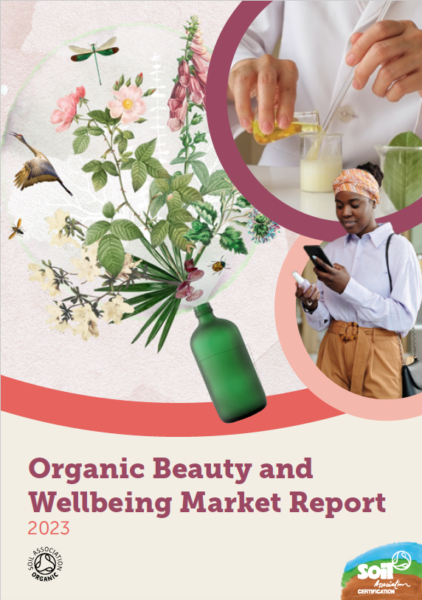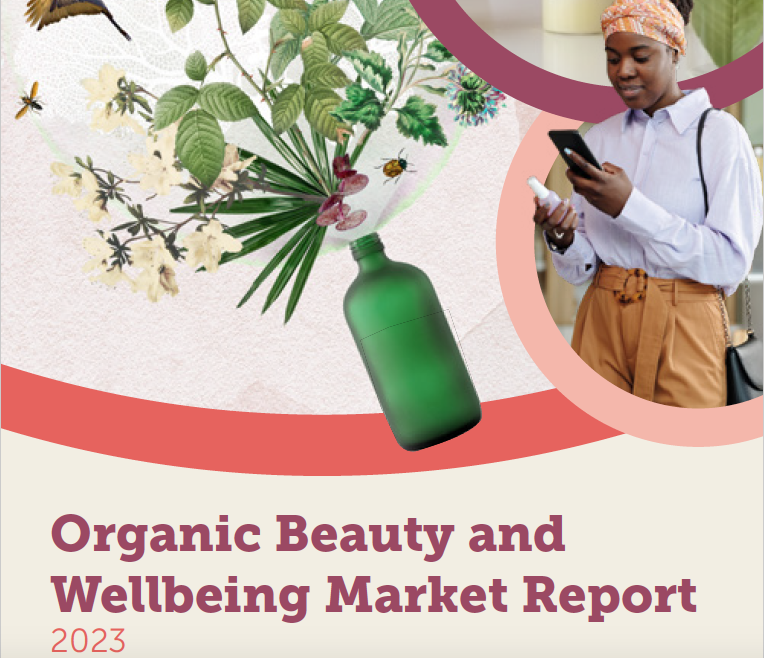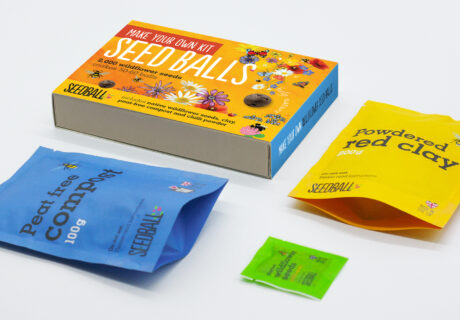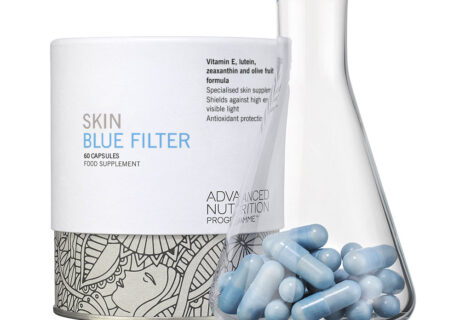Sales of certified organic and natural beauty and wellbeing products hit £147.63 million in 2022 according to the Soil Association’s (SA) latest Organic Beauty & Wellbeing Market Report (OBWMR), published today.
The report indicates that the market has doubled in five years, despite a slowing down of the double-digit growth seen in previous years, and it lists 2022 as the twelfth consecutive year of growth.
In a webinar hosted today by the SA and Louise Gookey, sustainability advocate, the report’s findings were presented. Gookey noted that the organic beauty and wellbeing market had ‘not been immune’ to the challenges of 2022 – notably, the war in Ukraine and the cost of living crisis. 67% of brands blame inflation for declining sales, which is reflected in the one in five shoppers who say they are concerned about the affordability of personal care products and the 67% who say that now budgets are being squeezed they can no longer spend on sustainable products.
We’ve always stood by third party certification. You can’t mark your own homework!
Still, the OBWMR maintains that the environment has remained ‘a key concern’ for the UK’s beauty shoppers. With growth of 6.8% last year, over £12 million is now being spent in organic and natural beauty and wellbeing each month, as consumers continue to prioritize sustainability – both in the beauty purchases they make and the information they seek when researching products.
 While organic beauty businesses make 59% of their sales online the OBWMR points to an expansion in High Street retail which is enabling certified brands to target more mainstream consumers. Gookey cited Myrtle & Maude as an example, outlining a deal with Boots which saw the brand’s range of certified organic pregnancy and post-partum SKUs hit shelves in 400 Boots stores nationwide as part of the retail chain’s ‘Be More’ campaign, designed to encourage customers to choose more sustainable products.
While organic beauty businesses make 59% of their sales online the OBWMR points to an expansion in High Street retail which is enabling certified brands to target more mainstream consumers. Gookey cited Myrtle & Maude as an example, outlining a deal with Boots which saw the brand’s range of certified organic pregnancy and post-partum SKUs hit shelves in 400 Boots stores nationwide as part of the retail chain’s ‘Be More’ campaign, designed to encourage customers to choose more sustainable products.
The recent addition of Dr Organic to the SA’s catalogue of certified products makes it ‘one of the largest Soil Association-certified beauty brands’, she commented, adding that the COSMOS organic standard has been updated with stricter environmental and social criteria than previous versions. COSMOS Organic V4 stipulates that palm oil and palm derivatives must be from organic or sustainable sources and that the use of endangered animals to collect primary raw materials is prohibited. COSMOS has also removed eight mineral origin ingredients, including copper, has extended its list of ingredients that must be organic, and has confirmed that sulphated emulsifier and surfactants are being phased out.
With research finding that nearly 50% of consumers are swayed towards organic and natural beauty by third party certification, Gookey said this demonstrates that shoppers are ‘becoming more savvy to greenwashing and are no longer taking what brands say at face value’. The OBWMR states that two thirds of certified brands say that certification has boosted their sales, while 95% believe it ‘gives greater strength to their sustainability claims’.
Webinar guest speaker Anabel Kindersley, co-owner of Neal’s Yard Remedies, commented: “We’ve been watching it all along, the greenwashing thing. I think it’s coming out now. I feel very positive because everyone is getting with the programme. Everyone is understanding that we can’t carry on using pesticides … we can’t carry on with ingredients ruining our planet [and] the toxicity of it to our own bodies. We’ve always stood by third party certification. You can’t mark your own homework! It’s independently audited. The Soil Association COSMOS stamp is a stamp of trust and authenticity. It’s a no-brainer to be certified, in my opinion.”
Speaking on the fundamental importance of a healthy environment, Kindersley added: “Until we stop disassociating ourselves from nature … we’re never going to care about nature enough to protect it. We need farmers, we need organic farms, we need better biodiversity in order to make the beautiful products that we rely on. We all depend on a really healthy ecosystem. Collaboration is the way forward. If we are … going to save the world we’ve got to work together.”
Consumers have a much stronger voice than perhaps they think
Dr Pauline Hili, founder of Nourish London, added that the birth of so-called ‘skintellectuals’ is applying effective consumer pressure on the beauty sector to better itself. “Skintellectuals really do help push the boundaries. Consumers have a much stronger voice than perhaps they think. You can vote with what you purchase. And that’s why looking for that logo … is really important and powerful.”
The OBWMR at a glance:
- Sales of certified beauty products have doubled since 2017 and the market is now worth £147.62 million
- £12 million is spent in the UK each month on organic/natural beauty and wellbeing items
- Sustainability information is now three times more important to beauty and wellbeing shoppers than product reviews or social proof
- Consumer awareness of greenwashing is increasing; 79% admit having doubts about ‘the trustworthiness of claims that brands make relating to sustainability or social impact’
- Third-part certification is shown to be the most effective way of encouraging shoppers towards sustainable purchases; 41% said they would be motivated to buy a product if it was certified
- New for the 2023 report is a section on the ‘medicalization’ trend in skincare and personal care, whereby consumers demand scientific proof behind efficacy claims of products and active ingredients, which one in three say they ‘will not compromise on’; the report highlights vitamin C and hyaluronic acid as examples.
Commenting on the report’s findings Alex Cullen, Soil Association Certification marketing director, says: “Consumer appetite for sustainable and clean beauty solutions shows no sign of slowing down with the market nearly doubling in the last five years. The rapid market growth is an indication of the level of innovation in the sector, as the beauty industry continues to clean up its act, across harmful chemicals, microplastics and single-use packaging. Organic beauty and wellbeing offers a certified and trusted solution for consumers to navigate this space, and will only further its position as a source of trends. The experiential and storytelling nature of the category has power as a bigger changemaker, in engaging consumers with the wider benefits of organic, as a standard for sustainable food and farming.”





